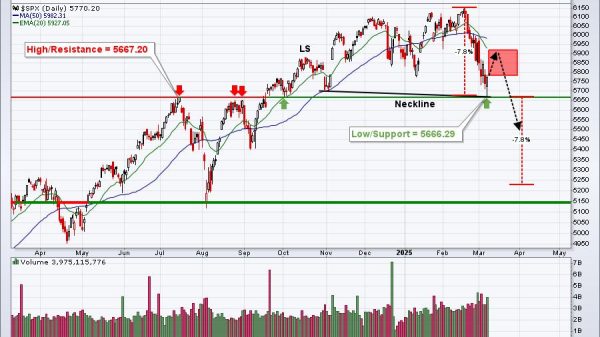
The Trump administration’s recent announcement of a sweeping deregulatory agenda for generative artificial intelligence (Gen AI) has created ripples across industries. This policy shift has implications for professionals and businesses alike, signaling a future where Gen AI development will accelerate quickly. If you want your work and business to survive this new acceleration, you need to adapt quickly to our increasingly disrupted environment.
Gen AI, a transformative technology capable of generating human-like text, images and even code, has already proven its value in diverse sectors. A study by McKinsey indicates that businesses integrating Gen AI achieve productivity gains of up to 45% in certain areas, like customer support. As these technologies become easier to implement under a less restrictive regulatory environment, their adoption will surge, reshaping how the delivery of value and nature of work.
For professionals and leaders, this means one thing: disruption. The rapid acceleration of Gen AI development will not only redefine industry standards but also create new expectations for efficiency and personalization. Imagine marketing campaigns tailored precisely to individual preferences, chatbots offering seamless customer experiences, and product prototypes being created in hours instead of weeks. Companies already deploying such capabilities are setting a new baseline for competition, forcing others to adapt or risk being left behind.
The reduced regulatory landscape opens the door for businesses to experiment and innovate more freely. However, it also magnifies the risks for those who hesitate. As Gen AI adoption becomes the norm, customers and partners will increasingly expect AI-driven solutions.
Businesses clinging to traditional methods may find themselves outpaced by competitors leveraging these advanced tools to cut costs, enhance services and scale operations. Professionals, too, will need to stay ahead of this curve, acquiring new skills to remain relevant in an AI-driven job market.
The challenge lies in adapting effectively to this fast-evolving environment. Organizations must first assess where Gen AI can deliver the greatest impact within their operations. This requires a thorough evaluation of inefficiencies and opportunities for automation. For professionals, the focus should be on building AI literacy, understanding its applications and learning how to collaborate effectively with these technologies.
According to PwC, a primary barrier to AI adoption is a lack of in-house expertise. Addressing this gap is critical, whether through training programs, partnerships with AI vendors, or hands-on experience with AI tools.
Collaboration will also play a crucial role in navigating this transformation. Businesses should consider partnering with AI-focused startups or research institutions to gain access to cutting-edge insights and technologies. Professionals, meanwhile, can benefit from joining networks and forums dedicated to AI adoption, staying informed about the latest developments and best practices.

Despite the reduced regulatory hurdles, ethical and risk management considerations remain essential. Businesses must ensure their AI implementations are transparent, unbiased and respectful of privacy. Missteps in these areas could lead to reputational damage that far outweighs any short-term gains. Trust is a critical asset in an increasingly AI-driven world, and companies that handle these technologies responsibly will stand out as leaders in their fields.
The Trump administration’s deregulatory push may accelerate Gen AI’s development and deployment, but it also raises the stakes for businesses and professionals. The pace of change will only intensify, and those who fail to adapt risk falling behind.
For leaders, this means making strategic decisions about where and how to integrate AI into their operations. For professionals, it requires staying ahead of industry shifts and embracing lifelong learning. By staying informed, acquiring relevant skills, and embracing the opportunities Gen AI offers, you can position yourself to thrive in this new landscape rather than being overwhelmed by it.
Related Topics
- Opinion
- Artificial Intelligence
- Trump Transition
- Business Regulations
- Tech



























